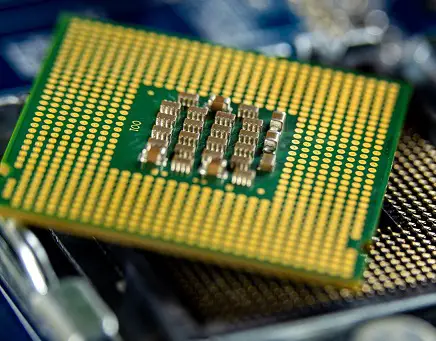The battle over semiconductor technologies between the US and China heated up, as China sought to retaliate against US export restrictions by restricting its own export of two key raw materials for the manufacture of semiconductor chips.
The Chinese Commerce Ministry announced the new export controls on Monday. Set to take effect on the 1st of August, the new restrictions will require that exporters seek “special permission” to export either the rare earth metals gallium or germanium or their derivative compounds, two vital elements required for the production of computer chips, solar panels, and advanced radar equipment. The Ministry cited national security interests in justifying the move.
China is the largest producer of gallium in the world, and a top exporter of germanium. Both metals are included in a European Union list of critical raw materials, which characterize such items as “crucial to Europe’s economy.” Between 2018 and 2021, the US has relied on China to supply 53% of its gallium, according to the US Geological survey. The US has not produced any of the metal domestically since 1987.
Beijing made the announcement three days after the Netherlands announced that it would impose its own export controls on equipment critical to the manufacture of semiconductor technologies. The move was seen as backing efforts by the United States to deny China access to critical technologies it requires to advance its domestic semiconductor industry, and perform advanced research into artificial intelligence technologies.
The Chinese government responded angrily to the move by the Dutch government, accusing the United States of seeking to maintain its “global hegemony” and implementing “semiconductor suppression against China.” China implored the Netherlands to “refrain from abusing export control measures” and to seek greater stability of the global supply chain for semiconductor technologies.
China’s new restrictions appear to be a shot across the bow of the global semiconductor supply chains, warning of the potential for disruption should the West seek to establish a trade war over the technology. The state-owned China Daily newspaper published an editorial on Monday which implied the move by Beijing was made in retaliation for the restrictions being imposed by the US and its allies.
The editorial said, “Those doubting China’s decision could ask the US government why it holds the world’s largest germanium mines but seldom exploits them. Or they could ask the Netherlands why it included certain semiconductor-related products, such as lithographic machines, into its export control list. It is they that challenge the world supply chain, and the blames that belong to them should never be shifted to China, as it’s defending its own legal national interests in this rather uncertain world.”

